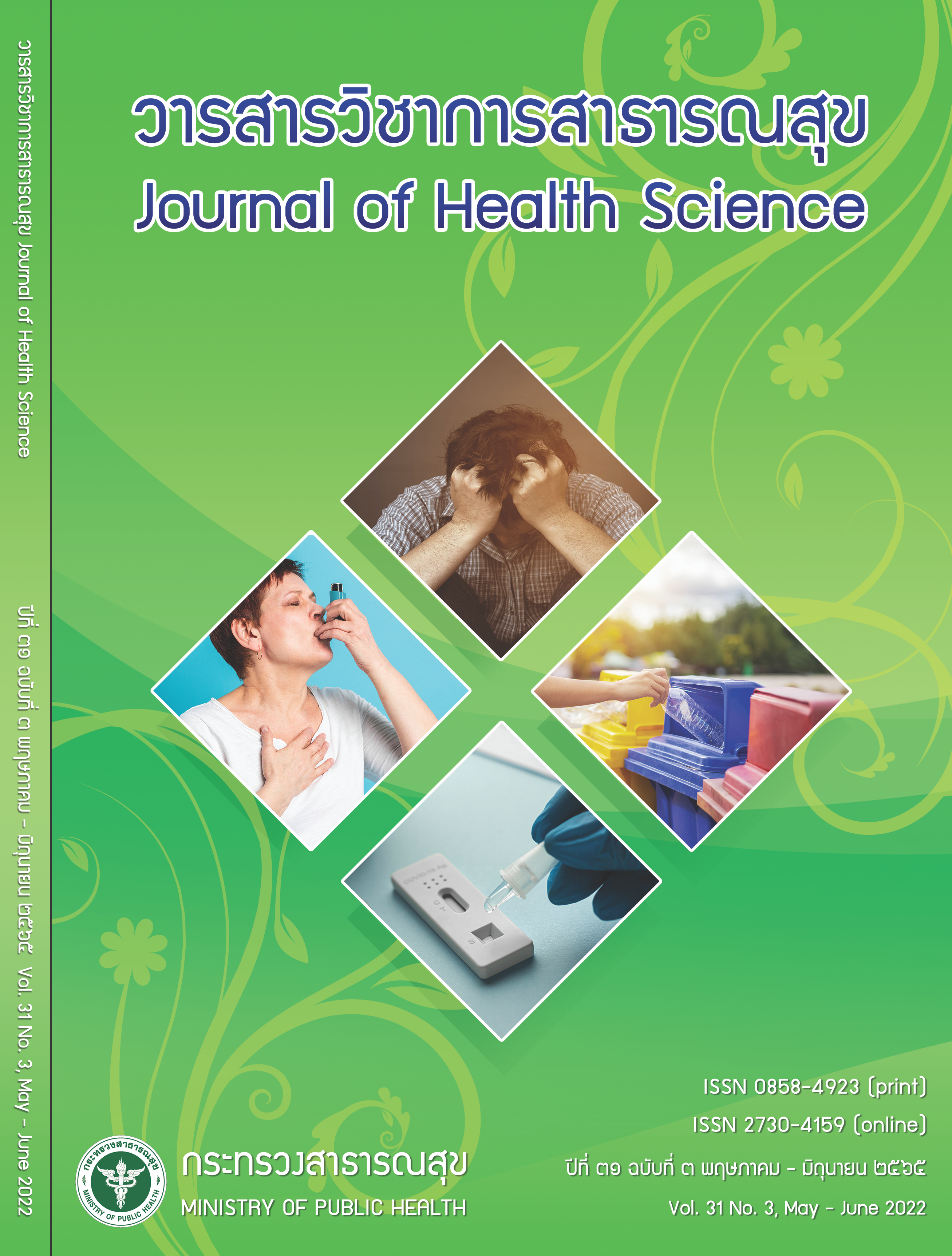Operational System of Migrant Health Workers and Migrant Health Volunteers Program in Thailand under the Concept of Migrant-Friendly Services
Keywords:
migrant health worker, migrant health volunteer, Thailand, migrant-friendly servicesAbstract
Thailand has become a key destination for migrant workers from neighboring countries, especially Cambodia, Lao PDR, Myanmar, and Vietnam, commonly known as CLMV nations. Migrant-friendly service policy led by the Thai Ministry of Public Health (MOPH) was launched with an aim to improve migrant health status by increasing access to quality health services. Migrant health workers (MHWs) and migrant health volunteers (MHVs) have played a vital role of the policy in reducing language and cultural barriers between health personnel and migrants since 2003 when the they were created. This study aims to understand and examine the operational system of MHWs and MHVs under migrant-friendly services program in Thailand. A qualitative study was employed. Data were collected by in-depth interview in two migrant-populated provinces. Fifty key informants were recruited including MHWs, MHVs, health professionals, non-governmental organization staff and policy makers. The results showed that MHWs and MHVs helped reduced the problems of miscommunication. The curriculum used to train MHWs and MHVs was guided by the MOPH with some adaptations to suit specific local contexts. MHWs mostly served as interpreters in public facilities and paid by organizations, while MHVs mostly served as health coordinators in migrant communities without remuneration. Operational problems in the function of MHWs and MWVs included the inadequacy salary and benefits and high workload (in case of MHWs), and lack of participation and low workforce retention (in case of MHVs). Therefore, the MOPH should ensure the sustainability of MHWs and MHVs services by introducing a clear set of policies, and proper training courses that is suitable with local context. Besides, there should be a clear budget plan that supports the employment of MHWs and capacity building program for MHWs and MHVs. Measures to increase social recognition as non-financial incentives for MHWs and MHVs should also be implemented to address workforce retention problems.
Downloads
Downloads
Published
How to Cite
Issue
Section
License

This work is licensed under a Creative Commons Attribution-NonCommercial-NoDerivatives 4.0 International License.







